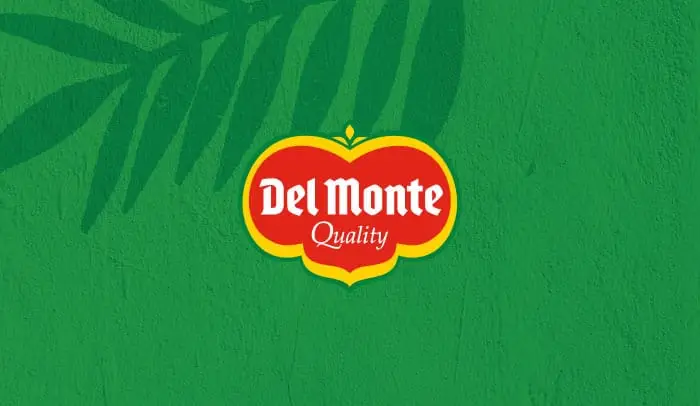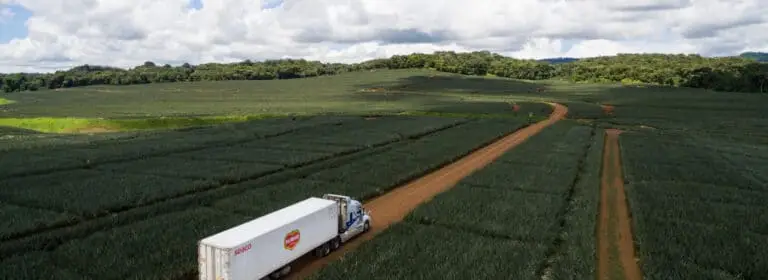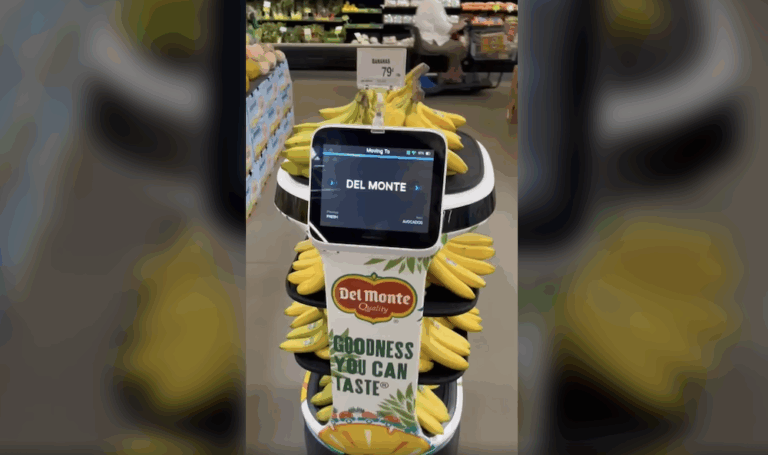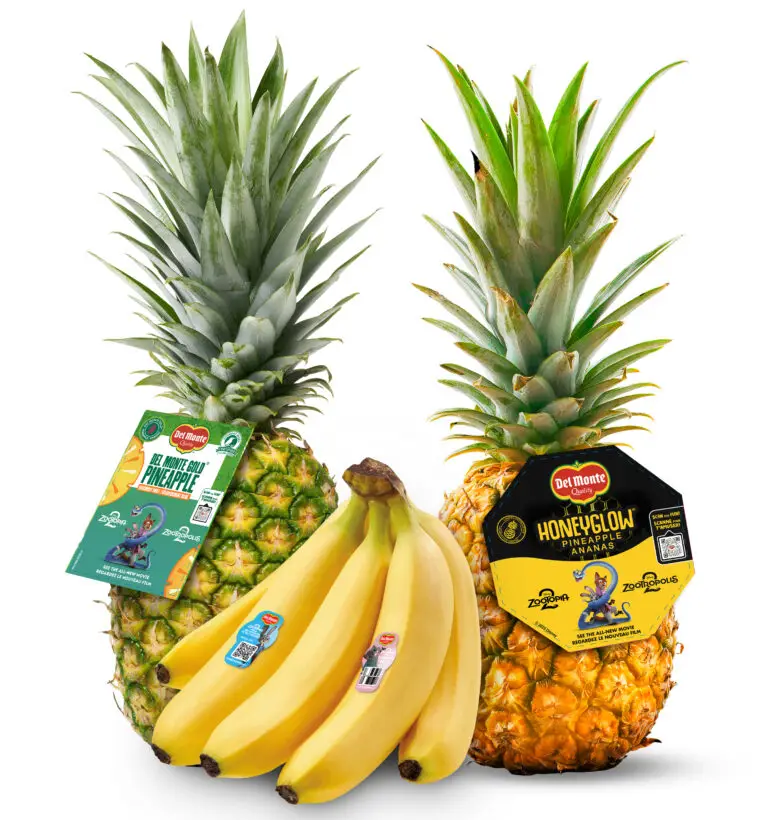As seen in AgFunderNews.
“Before I go,” Fresh Del Monte chairman and CEO Mohammad Abu-Ghazaleh told analysts on the firm’s Q2 earnings call last week, “I believe it’s important to discuss an industry-wide situation regarding bananas…”
The problem, he explained, is one “I have been predicting and warning about for years. There is a global shortage in banana production. We are already seeing a clear imbalance between supply and demand.”
And the causes, he said, are clear: “Shifting climate patterns, particularly warmer temperatures combined with humidity are accelerating the spread of [the devastating fungal] diseases [Black Sigatoka and Fusarium Tropical Race 4 or ‘TR4’] in key growing regions. These diseases are having a direct impact on supply. Black Sigatoka is affecting crops across Central America, while other countries are facing the compounded impact of both diseases.”
While Fresh Del Monte’s Q2 net sales of bananas rose 4% to $410 million, primarily driven by higher prices, “Costa Rica alone is down over 20% in their export volume this year as we speak,” he said. “It’s mainly because of the Sigatoka disease as well as other issues in the soil and the climate, so I don’t see that this is going away. This is getting worse as a matter of fact.”
So what can be done? To get his take, AgFunderNews (AFN) caught up with Jorge Pelaez Reyes (JPR), SVP of Central America at Fresh Del Monte, which grows bananas on its own farms in Costa Rica, Guatemala, and the Philippines and purchases bananas from independent growers in Costa Rica, Guatemala, Colombia, Ecuador, Mexico, Cameroon, and the Philippines.
AFN: How is Fresh Del Monte responding to the spread of these diseases and resulting supply shortages?
JPR: The ongoing banana shortage, primarily caused by TR4 and Black Sigatoka along with the accelerating impacts of climate change, will significantly disrupt consistent supply to markets and necessitate substantial adjustments to our pricing strategies.
In crops with already narrow margins, additional sourcing costs must now be reflected in our pricing. This is not a decision driven solely by our company—it’s a necessary adjustment across the sector. If others fail to make similar changes, they risk eroding their margins to unsustainable levels. Without profitability, it becomes impossible to maintain operations in the long term.
To bolster our supply chain resilience, we are proactively implementing stringent biosecurity measures and investing in climate-resilient farming practices within our farms.
Crucially, we are also strategically expanding into new, geographically diverse territories and exploring the cultivation of disease-resistant banana varieties to mitigate concentration risk and secure a more stable supply.
We are currently unable to disclose all the exact project locations. However, we can share that one of our active developments is in Somalia. The areas identified for banana cultivation span a wide geographic range—from the Equator up to slightly beyond 15 degrees latitude. We are conducting intensive research across these regions to identify suitable soils and optimal conditions for banana planting.
AFN: Can you provide more detail about the impact that Black Sigatoka is having on banana crops in the regions you source from?
JPR: The impact of Sigatoka has been particularly severe in Costa Rica. As of the latest data from May 2025, Costa Rica production has declined by 23%, equivalent to a loss of 12.4 million boxes.
This reduction is attributed to two main factors: approximately 7% due to adverse weather conditions, which led to lower fruit availability, and the remaining 16% due to Sigatoka-related issues.
In contrast, other regions have not yet reported significant production losses from the disease. However, there has been a noticeable increase in fungicide application cycles to maintain control.
In Colombia and Peru, both Black Sigatoka and TR4 have been reported. Other countries in the region have not confirmed the presence of TR4 as of now. The rest of the countries in the region are with the presence of Black Sigatoka.
AFN: What are the available tools against Black Sigatoka?
JPR: The pressure from Black Sigatoka has increased and is affecting all plants, but particularly the plants with slower leaf emission rates [that grow new leaves more slowly].
Our response includes enhancing water management on our farms with better drainage networks, efficient irrigation practices, and consistent maintenance to reduce plant stress and improve leaf development.
We’re also implementing improved plant distribution methods to optimize nutrient and fertilizer use, prevent overcrowded or empty areas, and create a balanced microclimate.
Proper spacing ensures better sunlight exposure, reduces excess moisture, and supports a well-structured canopy for more effective chemical application.
Finally, we’re also promoting faster leaf emissions through improved plant nutrition and soil management.
These measures help the plant maintain a healthy leaf canopy, which is critical for resisting the fungus and sustaining productivity.
AFN: Can you provide more detail on how you are preparing for TR4 in Central America?
JPR: While TR4 has not yet been detected in Central America, we are in a proactive prevention phase.
We’ve established clear biosecurity protocols across our farms to prevent its introduction. But if the disease appears, we are prepared with proven methodologies from our operations in Asia, where we have gained valuable experience in early detection and containment strategies, cost-effective disease management practices, and long-term planning for affected areas.
As a long-term solution, our R&D team is actively trying to find varieties with tolerance to TR4.
AFN: In the earnings call the company said field testing of TR4-resistant gene-edited banana lines is scheduled to begin within months. Can you tell us more?
JPR: Fresh Del Monte has been actively collaborating with both Queensland University of Technology and Tropic [which is redirecting non-coding RNA in bananas to attack a gene within the fusarium strain causing the disease] to obtain banana lines for testing. [Disclosure: AgFunderNews’ parent co AgFunder is an investor in Tropic.]
While we are currently unable to disclose specific details about the technology, progress is advancing well.
AFN: Dole and Chiquita are both working with partners on TR4 resistant varieties. Is Fresh Del Monte ahead or behind them on this front?
JPR: It’s always challenging to pinpoint exactly where other industry players stand, but our R&D department has benefited from years of sustained investment in TR4 research and has made significant strides toward delivering a real solution to the farms.
AFN: How vertically integrated is Fresh Del Monte’s banana business?
JPR: In 2025, a large part of our production is sourced from our farms, reflecting our growing self-sufficiency and operational control.
AFN: How are you adapting agricultural practices to counter climate change and disease threats?
JPR: We have significantly adapted our agricultural practices in response to the growing challenges posed by climate change and the consequent disease pressures. The changing climate has intensified pest and disease activity, requiring a shift from traditional chemical-based approaches to more integrated and sustainable solutions.
To address these challenges, we’ve implemented a range of agronomic improvements, such as better conditions for plant growth, improving drainage systems and maintenance practices to better handle increasingly intense rainfall, leveraging pseudostem reserves in new ways to help plants better withstand drought [improving how banana plants manage stored water and nutrients in the pseudostem, tightly packed layers of leaves that look like a trunk] and promoting soil health through cover crops, organic inputs, and smarter irrigation practices.
All of these practices have been validated through extensive trials by our research team, ensuring they deliver meaningful, measurable impact.



